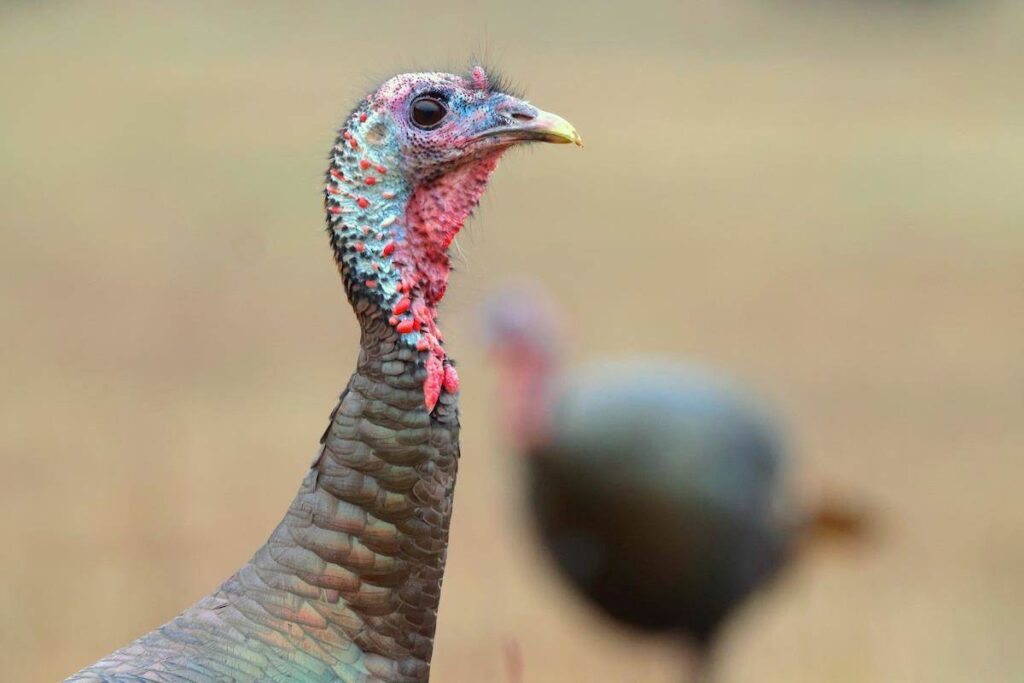
Tips for western spring turkeys

Author: Go Hunt
Published: March 23, 2023
A new and helpful turkey hunting article from Go Hunt!
“Wild turkeys inhabit 49 of the 50 states and can be a blast for hunters to chase in the spring when most of the other hunting seasons are over. When a person thinks about western hunting, you may hear a conversation about elk, mule deer, antelope or even bears; however, hunters rarely associate western hunting with the kings of the spring and this should change. Not only are there various subspecies of wild turkeys in the West, but they also have robust populations scattered through pockets of turkey habitat inside the western states. Wild turkeys do not inhabit the peaks and high elevations of the alpine country of the Rocky Mountains. Instead, they are found in most agricultural areas scattered throughout each western state and sometimes live as high as 9,000’ in elevation. While many hunters may use basic knowledge (and still have a blast chasing these birds in the spring), here are some tips to help seal the deal on your next western turkey hunt.
SCOUTING IS KEY
Like most western animals, scouting can make the difference between going home with meat in the cooler or tag soup. Turkey hunting is no different and may be more crucial since hunters can find turkeys in isolated pockets with thousands of turkey desolate acres in between the next pocket of birds. Scouting starts at home with a call to a local biologist or fish and game official before pinpointing spots on GOHUNT Maps.
Next, it’s time for some boots-on-the-ground scouting before your hunt.
Any time you can get out into your hunting areas in the weeks before the season helps you find good spots and eliminate bad spots before you use precious hunting days to do this. Arriving early can help you find and gain permission to hunt some private land birds. To find birds, I concentrate on listening at first light, using locator calls and glassing in the late morning hours and early evening hours. I do not call toward the birds as I do not want them to get “call shy.” Once I know where some birds are hanging out, I will leave the area until the evening before the hunt. “






No Comments